 Petzlover
Petzlover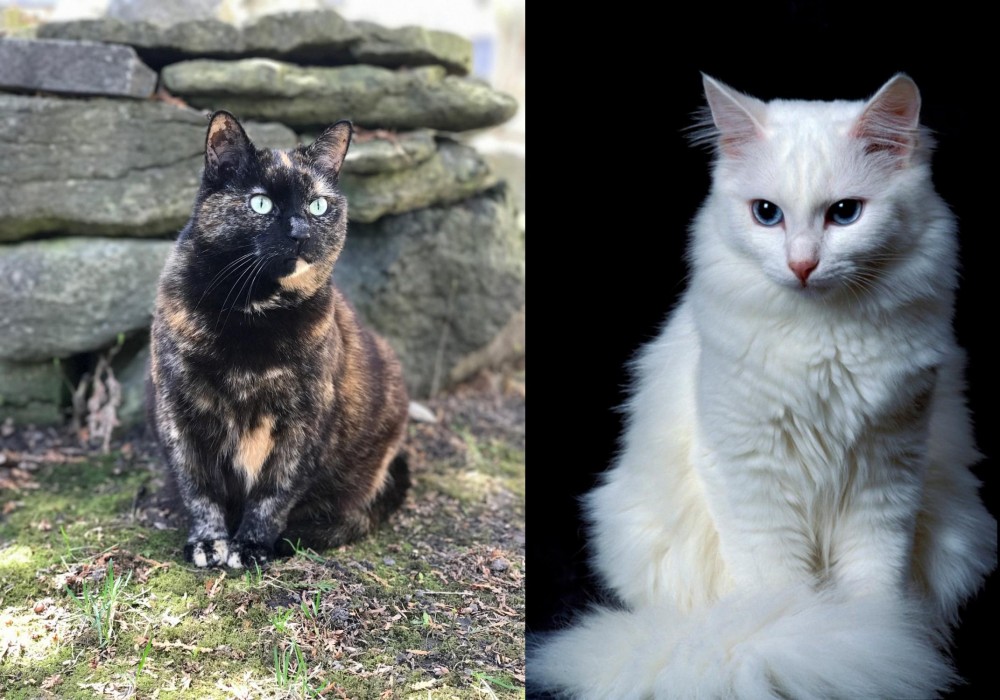 Tortoiseshell is originated from United States but Turkish Angora is originated from Turkey. Both Tortoiseshell and Turkish Angora are having almost same weight. Both Tortoiseshell and Turkish Angora has almost same life span. Both Tortoiseshell and Turkish Angora has same litter size. Both Tortoiseshell and Turkish Angora requires Moderate Maintenance.
Tortoiseshell is originated from United States but Turkish Angora is originated from Turkey. Both Tortoiseshell and Turkish Angora are having almost same weight. Both Tortoiseshell and Turkish Angora has almost same life span. Both Tortoiseshell and Turkish Angora has same litter size. Both Tortoiseshell and Turkish Angora requires Moderate Maintenance.
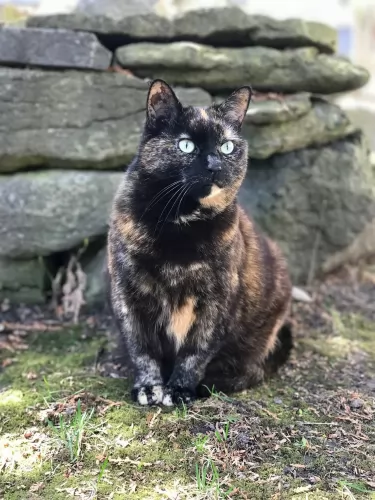 The Tortoiseshell isn’t a cat breed but rather a coat coloring of cats. It just happens that most tortoiseshell cats are females.
The Tortoiseshell isn’t a cat breed but rather a coat coloring of cats. It just happens that most tortoiseshell cats are females.
Known as Torties, these cats always have a couple of colors such as red and black as well as some fawn.
Tortoiseshell cats with the tabby pattern are referred to as Torbie cats. Tortoiseshell markings appear in many different breeds.
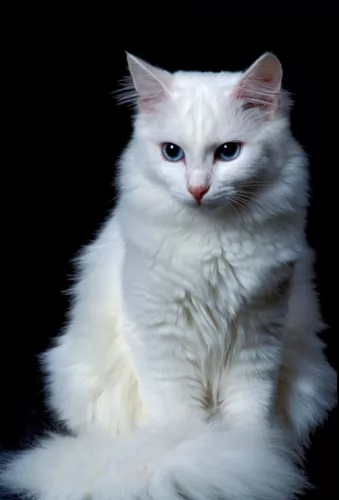 The Turkish Angora is a very old breed that naturally developed. It is thought that the breed developed in Turkey in the Ankara region formerly known as Angora.
The Turkish Angora is a very old breed that naturally developed. It is thought that the breed developed in Turkey in the Ankara region formerly known as Angora.
There are records that indicate that the Turkish Angora made an appearance in the UK as early as the 14th century already. Also, the beautiful longhaired cat was also introduced to the United States.
A breeding program was started for these cats in the early 20th century and it was then taken to Canada in 1963 and accepted as a championship breed.
While white was the only acceptable color at first, they now come in many different colors.
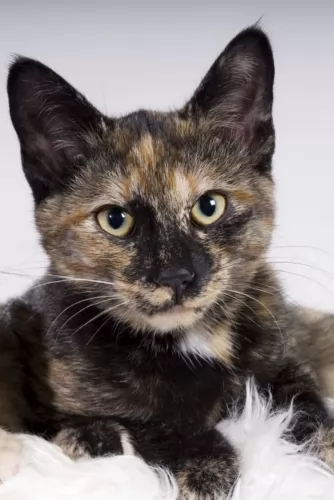 Tortoiseshell cats are your regular-sized cats. They can be medium-sized to large and weigh anything between 3 and 7kg.
Tortoiseshell cats are your regular-sized cats. They can be medium-sized to large and weigh anything between 3 and 7kg.
They come in different colors and patterns. The colors are essentially cream, fawn, black, tan, and orange. Tortoiseshell markings appear in all the different cat breeds.
Because the tortoiseshell cat is a color and not a cat breed as such they can be different sizes and shapes.
Tortoiseshell cats aren't a specific breed, but there are people that believe that just the color of the coat is indicative of the personality – feisty and lively.
People who have owned these cats say they have a sassy temperament and can even be just a wee bit aggressive sometimes with their strong-willed attitude.
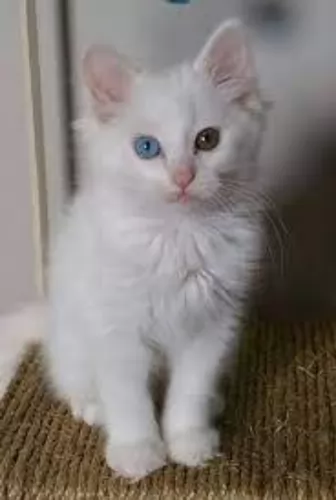 This is a medium-sized, muscular cat that can weigh between 3 and 6kg. It is a long-haired cat and the single coat has no undercoat.
This is a medium-sized, muscular cat that can weigh between 3 and 6kg. It is a long-haired cat and the single coat has no undercoat.
While the Turkish Angora is essentially white, its coat can come in a number of other colors.
The cat’s body if firm and fairly long, the legs are long with the hind legs being longer than the front legs, The tail is long and plumed, the head has large fairly pointed ears that can have tufts of fur. The eyes are large and almond-shaped and slant somewhat upwards. The color of the eyes can be blue, green, gold, amber.
This is a very active, athletic cat and he likes nothing more than to leap up on to high perches to survey his surroundings. They are intelligent, affectionate cats and they seem to gravitate towards one special human family member.
The cat is also protective of his human family. If any family member wants to stroke and pet them, they are absolutely delighted, just lapping up the attention.
They are smart enough to learn a few tricks too. They aren’t vocal cats but are sweet and quiet as well as being affectionate, making them perfect companions.
They don’t do well with changes, and a sudden change in his lifestyle can be upsetting for him.
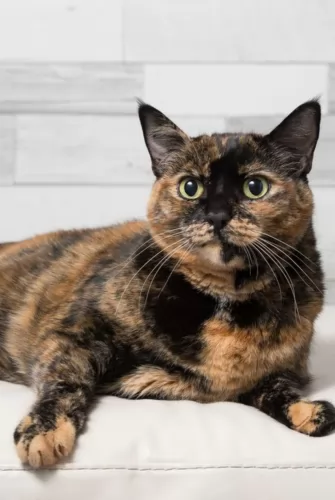 Your Tortoiseshell is a beautiful cat and fondly referred to as a Tortie. It has a coat similar to the coloring of a tortoise, but the temperament of the cat will rely much on your own personality and the lifestyle you provide him with.
Your Tortoiseshell is a beautiful cat and fondly referred to as a Tortie. It has a coat similar to the coloring of a tortoise, but the temperament of the cat will rely much on your own personality and the lifestyle you provide him with.
They are fairly vocal, but because this cat isn't a breed but rather a coat color, nobody can say precisely how it will turn out in personality.
One thing is sure, if you offer your Tortoiseshell lots of love and care, you can be sure of a wonderful feline friend.
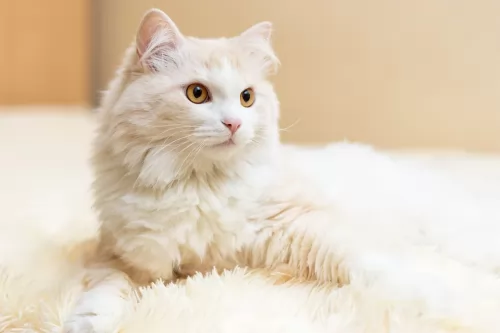 Beautiful to look at, this cat has got all the characteristics that make him a wonderful pet. He is playful well into adulthood and will love an assortment of stimulating toys to be amused by.
Beautiful to look at, this cat has got all the characteristics that make him a wonderful pet. He is playful well into adulthood and will love an assortment of stimulating toys to be amused by.
He is a sociable breed and doesn’t enjoy being left alone for hours. It would be far better to have another feline friend to keep him company.
Active and entertaining, you’ll be amused by your Turkish Angora and be so glad that you made the decision to bring such a charming creature into your home and heart.
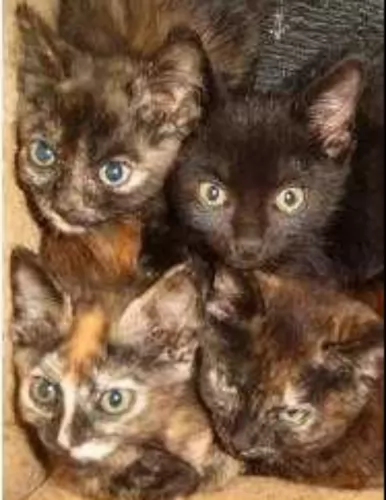 Your cat's health depends on good food. If your finances allow, choose a high-quality food. Check the label for the feeding guidelines.
Your cat's health depends on good food. If your finances allow, choose a high-quality food. Check the label for the feeding guidelines.
Always remember that your cat's age - kittens, adults, and senior cats have different nutritional needs. Sick cats will require a different type of food. Watch your cat's weight because being overweight can bring on a host of illnesses such as diabetes.
A cat has to have access to fresh drinking water every day and night to remain healthy.
Ensuring your feline friend is exercised both mentally and physically is important for good health.
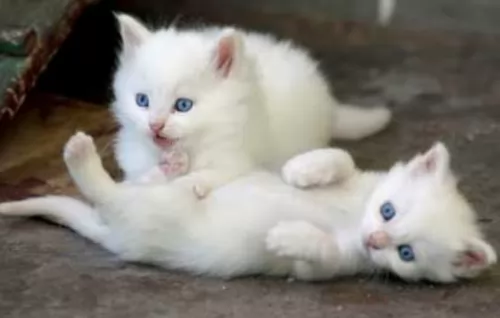 Turkish Angoras are generally healthy, but white cats with blue eyes can be prone to deafness. It is the W gene that is responsible for the white coat and blue eyes. Unfortunately, the presence of a blue eye can indicate deafness in the cat. But there are these cats that have 2 blue eyes and they have normal hearing.
Turkish Angoras are generally healthy, but white cats with blue eyes can be prone to deafness. It is the W gene that is responsible for the white coat and blue eyes. Unfortunately, the presence of a blue eye can indicate deafness in the cat. But there are these cats that have 2 blue eyes and they have normal hearing.
Another problem that has been seen in this beautiful cat breed is Ataxia which is a deadly neuromuscular disorder.
The most common sign of ataxia is an abnormal way of walking and the cat is actually unsteady on his feet. Sometimes the feet can even drag on the ground. Thankfully, screening has reduced the incidence of the disease.
Also, watch out for hypertrophic cardiomyopathy, a kind of heart disease that causes the heart muscle to enlarge.
Just remember that with a cat, diet can also play a huge role in the health of a cat. Your furry friend needs the right meaty foods with the right balance of nutrients to remain healthy and strong.
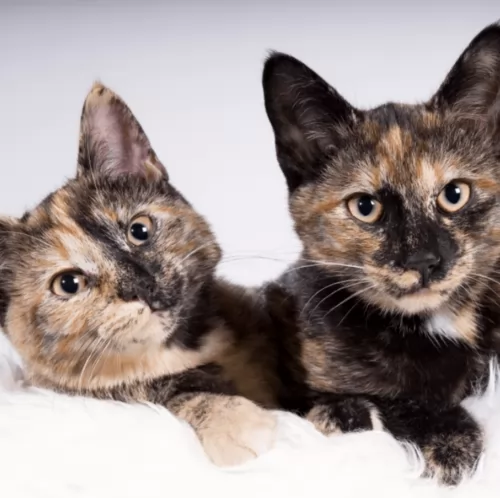 Cats are known to be independent but they still need your care and attention. Before you take a Tortoiseshell into your home, prepare for his arrival.
Cats are known to be independent but they still need your care and attention. Before you take a Tortoiseshell into your home, prepare for his arrival.
Make sure you have food and drinking bowls ready, a comfortable bed, a stylish cat collar and tag of identification, cat accessories such as a brush, toys, and some top-quality cat food.
If you work all day, maybe it would be a good idea to get 2 cats as some cats can get very lonely during the day, and adding a companion can be an excellent solution for his loneliness.
Always be in touch with the vet if you see that your cat isn’t behaving in his usual way.
Your cat will need to be taken for check-ups and also all the necessary cat vaccinations required to ward off deadly cat illnesses.
Provide your cat with a litter box and make sure you remove the cat feces every day.
Provide your cat with toys. Choose them carefully to keep your cat happy and amused. Buy a scratching post too as all cats want to scratch and you want to save your furniture from your cat using it to scratch on.
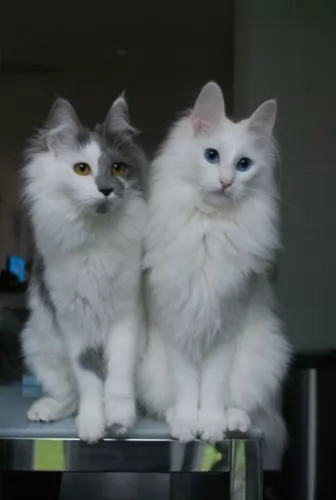 The Turkish Angora has a single coat and the lack of an undercoat makes it easy to brush him and keep the coat soft and silky. Also, the coat is only fully developed when the cat is about 2 years old.
The Turkish Angora has a single coat and the lack of an undercoat makes it easy to brush him and keep the coat soft and silky. Also, the coat is only fully developed when the cat is about 2 years old.
Check the inside of the ears. You may not want to clean them out yourself as you have to be very careful not to damage the ears. The vet and cat groomers can help you with this.
Keep your Turkish Angora’s litter box spotlessly clean. Cats are very particular about the cleanliness of their litter box and the feces will need to be removed every single day.